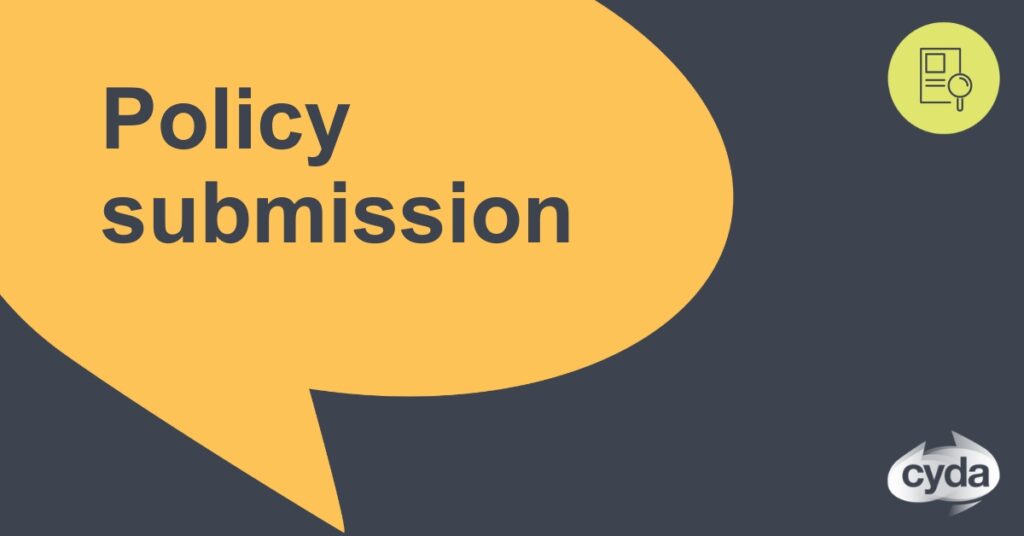Children and Young People with Disability Australia consistently hears that support coordination provides invaluable support to children, young people with disability and families, particularly those accessing the NDIS for the first time.
For it to be most effective, support coordination for children and young people must be funded at an appropriate level and quality, and it should be delivered by professionals with appropriate understanding of disability, inclusion best practice, and general childhood development.
You can download our full submission using the buttons above.







